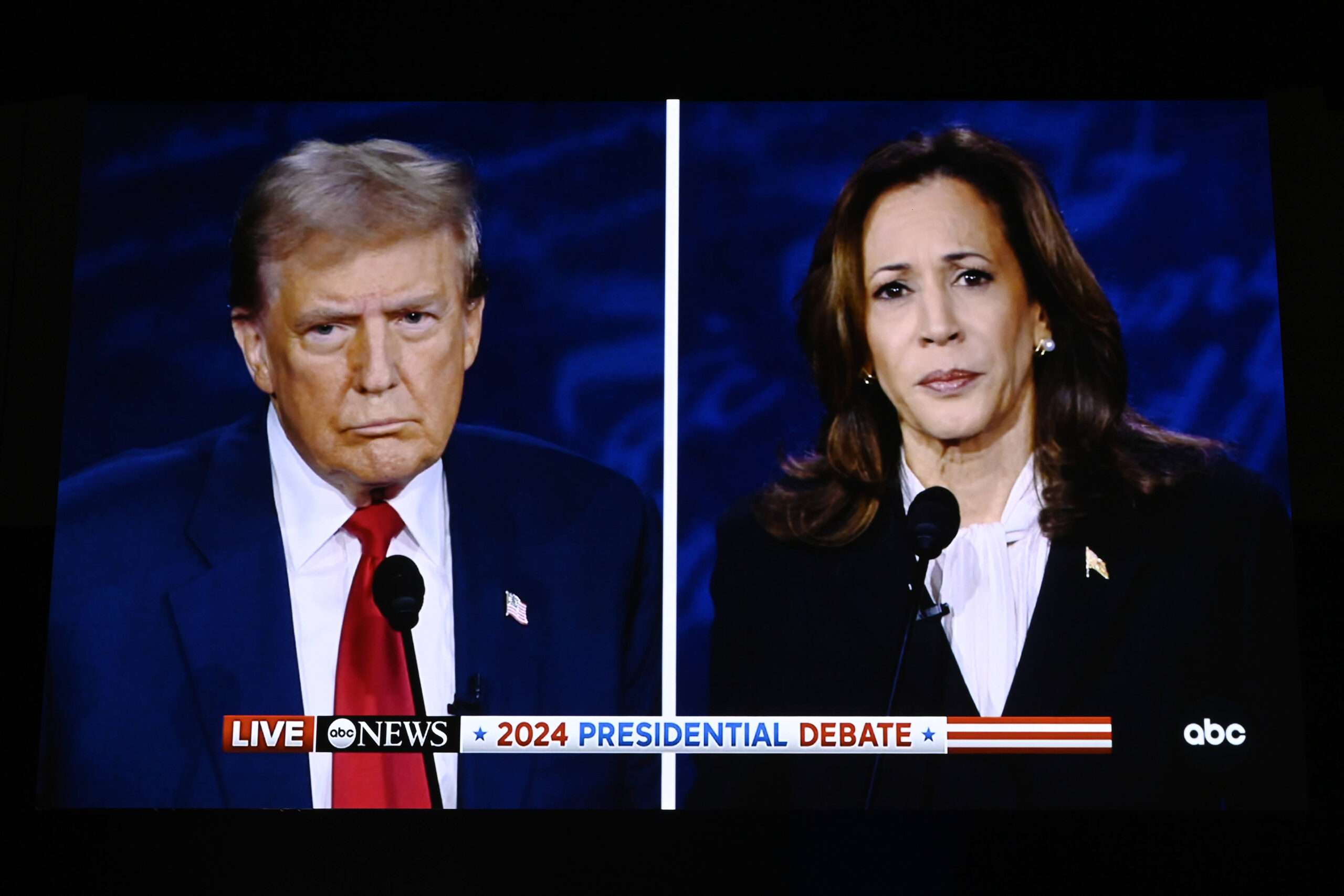In this post I am going to explain why Kamala Harris is a far lesser evil than Donald Trump, and therefore, I plan to vote for her. Both candidates have serious flaws. But Trump’s record of trying to overthrow constitutional democracy after he lost the 2020 election creates a strong presumption against him. In addition, he is worse on key policy issues, most notably, trade, immigration, federal spending, and maintaining the Western alliance in the face of threats from authoritarian powers.
This outweighs Kamala Harris’s significant weaknesses on some other issues, especially because Trump is more likely to be able to implement his worst policies through unilateral executive action, while Harris’s worst ideas require hard-to-secure new legislation. Arguments that Trump is superior on deregulation and issues related to the judiciary are greatly overblown, and nowhere near enough to offset his awfulness elsewhere.
It would be foolish to expect this piece to have any meaningful impact on the outcome of the election. I am no Taylor Swift, and my endorsement has little, if any, political value. But I hope readers might find it of value as an exercise in how to assess issues and weigh them against each other.
When it comes to public policy and choosing candidates, my priorities are promoting freedom and human happiness. Thus, I give greatest weight to those issues with the biggest impact on them. People with relatively similar values are likely to find my assessment of greater relevance than those with very different ones.
Elsewhere, I have defended the idea of voting for a lesser evil, which means the least-bad candidate among those with a realistic chance of winning the election. Check out my earlier writings on that subject if you want to know why I’m not going to vote for a third party candidate, even though Libertarian Party nominee Chase Oliver is far superior to both Harris and Trump on most issues (with the important exception of national security policy). The other third party candidates—RFK, Jr. (where he remains on the ballot), Jill Stein, Cornel West, etc.—all both have zero chance of winning and are absolutely terrible on policy.
The Presumption Against Trump
Before getting into policy issues, it is important to emphasize that Trump’s efforts to undermine the Constitution and overturn the results of the 2020 election by force and fraud create a strong presumption against him. If such behavior is left unpunished and instead rewarded with another term in office, it creates an obvious incentive for both Trump and other politicians to engage in similar—and perhaps even worse—skullduggery in the future. If future presidents are permitted view acceptance of electoral results and peaceful transition of power as optional, that poses a serious threat to the entire system of constitutional democracy.
This danger is exacerbated by Trump’s repeated promises to use the power of government to persecute his political enemies. Even if he doesn’t launch another insurrection or coup, Trump could severely undermine basic norms of liberal democratic government, and his past track record indicates he has every intention of trying to do so. His authoritarian tendencies are so blatant that even many of his former cabinet members and advisers —such as Gen. John Kelly (Trump’s former chief of staff) warn against them, and have refused to support him for a second term.
Libertarian political philosopher Michael Huemer cogently argues this danger is so great that it renders normal policy issues irrelevant, even though he is also no fan of the political left, which he regards as the biggest long-term threat to liberty. I wouldn’t go quite that far. A sufficiently great superiority on other issues might still justify backing Trump over Harris.
But Trump’s track record of trying to overthrow constitutional democracy at least creates a very strong presumption against him, one that can only be overcome by truly overwhelming advantages elsewhere. As we shall see, not only is there no such overwhelming advantage, but Trump’s policy agenda is actually much worse than Harris’s.
Why Trump’s Policy Agenda is More Dangerous than Harris’s
Trump proposes truly horrible policies on trade, immigration, and national security. And he has a good chance of being able to carry out this agenda through unilateral executive action.
On trade, Trump plans to impose 10% or more across-the-board tariffs on virtually all imports. This would inflict immense damage on the US economy (reducing GDP by 0.8% even without considering the impact of retaliation by trade partners), cost the average family $1350 to $3900 per year (again, even without accounting for retaliation), destroy more jobs than it would create, trigger a massive mutually destructive trade war, and severely damage US relations with our allies, thereby weakening our position relative to authoritarian adversaries like Russia and China. Moreover, under current judicial precedent, Trump could likely implement this policy without any new legislation, and courts would probably do little or nothing to curb it. Even if Trump implemented “only,” say, half of this tariff agenda (e.g.—5% tariffs instead of 10%), it would still be a terrible disaster.
The story on immigration is similar. Trump plans to adopt mass deportation, and also massively cut legal immigration (probably even more than he did in his first term, when he slashed legal migration far more than the illegal kind).
I have previously discussed why reducing immigration restrictions should be a top priority for those concerned about freedom and human happiness. Trump’s policies would have a detrimental impact on this issue on a massive scale.
Trump’s agenda would condemn millions of potential immigrants to lives of poverty and oppression simply because of where they were born. Libertarians who oppose socialism should also oppose barring migrants fleeing socialist regimes like those in Cuba and Venezuela.
Furthermore, Trump’s mass deportations and cuts to legal migration would disrupt markets, increase prices, and create shortages, ultimately harming current US citizens. Deportations destroy more American jobs than they create, and cutting migration would worsen the federal government’s fiscal situation.
Large-scale deportation often results in the detention and deportation of US citizens due to poor due process protections. Trump’s plans could exacerbate this problem. While executive power over immigration is somewhat constrained, Trump could still do significant harm.
On the other hand, a Harris administration would likely enact harmful regulations but not on the same scale as Trump’s tariff and immigration policies. Additionally, when it comes to government spending, Trump’s policies would significantly increase the deficit compared to Harris’s.
Congressional dynamics also play a role in fiscal restraint, with Republicans more likely to stress fiscal responsibility with a Democratic president. A Harris victory combined with a GOP-controlled Congress would be the best scenario for fiscal restraint.
In terms of security and defense policy, Trump’s agenda would weaken the Western alliance and damage relations with allies. His proposed trade war with allies and questioning of obligations under NATO could have serious consequences in the face of rising threats from authoritarian powers like Russia and China. The likelihood of poisoning relations with key allies and emboldening our enemies is another concerning aspect of this situation. Trump’s advocacy for ending all or most US aid to Ukraine, as well as VP nominee J.D. Vance’s even more unequivocal stance on the matter, could have disastrous consequences. The Ukraine war is not just a regional conflict; it represents a central front in the global battle between liberal democracy and authoritarian nationalism. Allowing Putin to succeed in Ukraine would significantly strengthen the forces of authoritarianism and encourage further aggression. It is essential to support Ukraine in this critical moment, not only for humanitarian reasons but also for the broader implications on global democracy and security.
Moreover, the comparison between Trump’s approach to Ukraine and the Democrats’ stance on Israel is not valid. While Biden and Harris have sometimes urged restraint on Israel, they have continued to provide extensive support that enables Israel to defend itself effectively against threats. On the other hand, Trump’s policies towards Ukraine would severely weaken its ability to resist Russian aggression. Given the higher stakes involved in the Ukraine conflict and the strategic importance of countering Russia, prioritizing support for Ukraine over other geopolitical considerations is imperative.
When it comes to deregulation and judicial reform, the arguments in favor of Trump’s policies are questionable. Trump’s record on regulation shows an expansion rather than a reduction of government intervention in the economy. Additionally, his trade and immigration policies have had negative impacts that outweigh any potential benefits in regulatory reform. On the judiciary front, the supposed threat posed by Democrats is overstated. Proposed reforms such as term limits for Supreme Court justices do not pose a significant risk to judicial independence. The idea of court-packing, while more concerning, lacks broad support within the Democratic party and faces significant obstacles in Congress.
Overall, the choice between Trump and the Democrats presents challenges for those who value freedom, democratic institutions, and the strength of Western alliances. Despite the shortcomings of both options, it is clear that one choice is far more detrimental to these core values than the other. Please rewrite this sentence.
Source link





